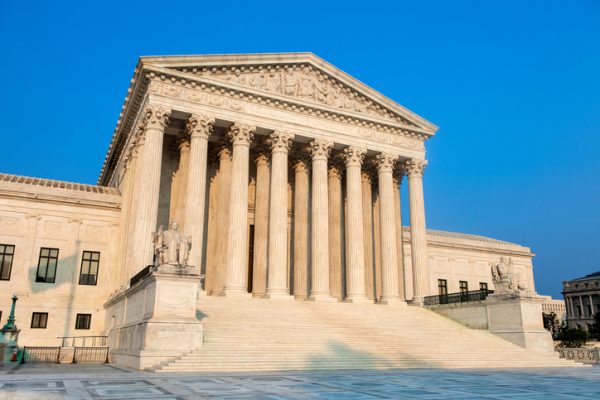
A legal case involving a Department of Health and Human Services rule adopted in May that requires television ads to include drugs’ list prices is likely to find its way to the Supreme Court after a judge ruled against the Trump administration Monday, a legal expert said. That could potentially set up a clash over how courts defer to regulatory agencies.
Judge Amit Mehta of the District Court for the District of Columbia ruled Monday that HHS lacked the authority to enact the rule under the Social Security Act. “Neither the Act’s text, structure, nor context evince an intent by Congress to empower HHS to issue a rule that compels drug manufacturers to disclose list prices,” he wrote.

Reducing Clinical and Staff Burnout with AI Automation
As technology advances, AI-powered tools will increasingly reduce the administrative burdens on healthcare providers.
The administration issued the rule requiring drugmakers to list the wholesale acquisition cost, or WAC, of drugs in television ads. The move drew opposition from the industry, which expressed concern that it would lead to consumer confusion and sticker shock. That led to a lawsuit filed last month by Amgen, Eli Lilly & Co., Merck & Co. and the Association of National Advertisers.
“The battle is on,” University of California Hastings law professor Robin Feldman said in a phone interview. “No one doubted that the pharmaceutical industry would fight the administration’s proposal to put drug costs in ads, and pharma has won the first round.”
Mehta emphasized that he was not calling into question HHS’ motives in adopting the law or expressing any view on the wisdom of requiring drug companies to disclose prices. He even acknowledged the possibility that such a rule could be effective in halting rising prescription drug costs. “But no matter how vexing the problem of spiraling drug costs may be, HHS cannot do more than what Congress has authorized,” he wrote. “The responsibility rests with Congress to act in the first instance.”
While Mehta ruled that HHS lacked authority to issue the rule, he did not rule on the plaintiffs’ other objection, that it constituted compelled speech and thus violated the First Amendment. While expecting that the courts would have to address that issue, Feldman said the industry will have a difficult time arguing that the HHS rule is about core political speech.

The Funding Model for Cancer Innovation is Broken — We Can Fix It
Closing cancer health equity gaps require medical breakthroughs made possible by new funding approaches.
“First Amendment protections are far weaker outside that traditional area,” she said. “With compelled speech, we usually worry about government trying to force people to make a political statement – revealing price information is a bit far away from that.”
Feldman said the case is likely to go to the United States Court of Appeals for the District of Columbia Circuit and ultimately go before the Supreme Court.
The case, she said, involves deference to agencies, which is Justice Stephen Breyer’s area of expertise. It also involves the landmark 1984 case of Chevron U.S.A., Inc. v. Natural Resources Defense Council, Inc., which gave rise to the administrative law doctrine known as “Chevron deference.” The doctrine calls for courts to defer to regulatory agencies’ interpretation of statutes. Justice Neil Gorsuch has written opinions against Chevron deference, such as when he sat on the U.S. Court of Appeals for the Tenth Circuit.
In other words, the ruling sets up a potential clash of views on agency deference, Feldman said. “I think this case will be irresistible to the Supreme Court.”
Photo: traveler1116, Getty Images








